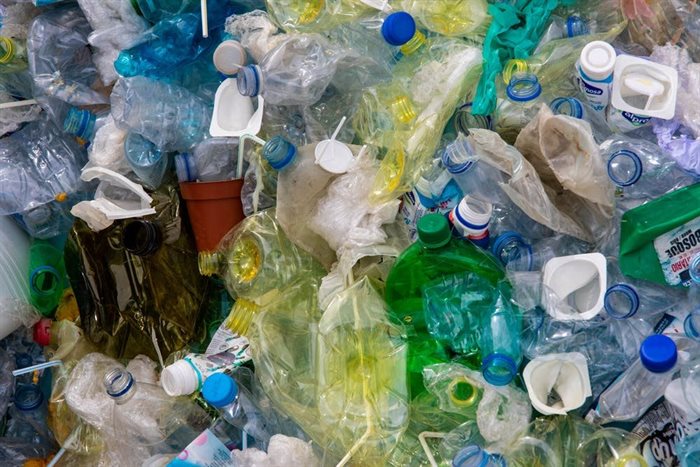
In an effort to tackle plastic pollution, the World Wide Fund for Nature (WWF) has called on African governments to support the establishment of a negotiating mandate for a legally binding global treaty on marine plastic pollution at the fifth United Nations Environment Assembly (Unea) scheduled to take place from 28 February to 2 March 2022.
 |
Hosted by the UN Environment Programme, Unea brings together representatives of the 193 member states of the United Nations, businesses, civil society and other stakeholders to agree on policies to address the world’s most pressing environmental challenges.
This year’s edition of the meeting is themed “Strengthening Actions for Nature to Achieve the Sustainable Development Goals”, highlighting the pivotal role nature plays in our lives and in social, economic and environmental sustainable development.
Helping Africa tackle plastic pollution
The magnitude of the plastic problem is illustrated in the calculation by the International Union for Conservation of Nature that South Africa alone is responsible for an estimated 107,000 tons of plastic in our oceans each year. This includes tyres, clothing, e-waste, packaging and disposable nappies. Much of it either goes to landfills and open dumps or leaks into our rivers and oceans.
The WWF Circular Plastics Economy Programme has projects in the business, policy and cities space to address the multifaceted and complex nature of the plastic pollution problem in Africa funded by a range of donors, including the WWF Nedbank Green Trust.
At the global and regional policy level, the programme has projects that aim to capacite WWF offices in Africa to explore solutions to address the plastics pollution problem in the local context, advocating for the development and implementation of policy mechanisms at a national level through engagement with governments in Africa.
According to programme manager Lorren de Kock, the organisation is urging the governments to “take action at all stages of the plastic lifecycle as only systemic solutions and interventions will reduce and eventually stop the leakage of plastic pollution into the oceans by 2030”.
At a national policy level, she explains, we need to implement measures that extend responsibility for plastic pollution all the way up the value chain, from the plastic resin producers and converters to brand owners and retailers, consumers, waste management organisations and government.
The aim is to create a circular economy for plastic, including the reduction of virgin plastic production, re-use of plastic products in the system, eliminating unnecessary and problematic plastics, and recycling plastic.
Plastics and packaging laws in SA
In 2021, two key pieces of legislation were gazetted in the South African policy space.
The first specifies that all plastic bags, including those imported, must contain at least 50% post-consumer recycled plastic from the beginning of 2022 and will need to have 100% post-consumer recycled plastic from January 2027.
The second act requires companies that place plastic packaging, electronics, glass bottles and cardboard, among other goods on the market in South Africa, to be financially and/or operationally responsible for all end-of-life activities of the packaging and products they place on the market.
The new Extended Producer Responsibility (EPR) legislation also includes targets that require increasing the amount of recycled material in the products and increasing the overall volumes of collection and recycling of these products going forward.
In 2020, the Circular Plastics Economy Programme received additional funding from the Swedish Environmental Protection Agency (EPA) to engage with stakeholders in the national plastic value chain to provide policy recommendations for EPR on plastic packaging.
Adopting reuse and recycle models
At the business level, the South African Plastics Pact, launched on 30 January 2020, is making good headway with industry and government. Although voluntary at this stage, the pact formalises collective national targets for the value chain through its 20+ members including Pick n Pay, Clicks, Woolworths, Spar, Unilever, Tiger Brands and Spur Holdings.
“We want to get away from continuously extracting fossil fuels to make more virgin plastics, which is simply creating more waste,” says de Kock, who explains that plastic products, especially packaging, need to be designed to be reused and also economically and technically recycled at the end of life, even after a single use.
Once recycled, it can be used as a raw material in other products. By adopting more reuse models and using increasing amounts of recycled plastic in products, de Kock believes that “we will reduce our dependence on virgin plastic and create a circular material flow in the economy where plastic does not become waste and leak into the environment”.
“Our focus is also going to be on cities and behaviour change across the value chain. For the cities to work, we will be engaging with the various coastal municipalities to find solutions to reduce the leakage of plastics into the environment. Lessons learnt through pilot projects and stakeholder engagement can be shared with other cities through communities of practice,” de Kock concludes.
